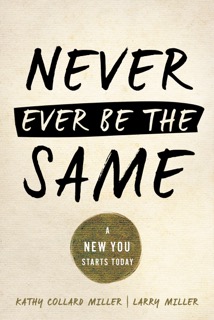Anger Expert or Patience Pro?
Kathy Collard Miller is an author and speaker who encourages women to trust God. In this Attitude UPGRADE, she helps us trust the Lord with an attitude that can be destructive: Anger!
“Why do I keep getting angry?" Kathy said. "I want to be patient, but life and people are  aggravating."
aggravating."
I (Dawn) used to think anger was other people's problem. I didn't have a problem losing my temper.
But if we have an undercurrent of anger, it can burst forth in other problems like bitterness, an unforgiving spirit or even something as simple as avoiding people.
Kathy continues . . .
Life and people are aggravating. We pray for patience, but as someone has said, “Don’t pray for patience; God will give you many opportunities to practice.”
That was certainly true for me.
For many years, I was an anger expert. It was my “go-to” response. I prayed for deliverance but I still was destructively angry. In moments of temptation, I felt helpless and believed I didn’t have a choice.
But the truth is, anger is a choice.
Holding ourselves responsible rather than excusing our destructive reaction will lay a foundation for slowing down our reactions and allowing God to show us alternatives.
How can we “slow down”? When life (or someone) throws something aggravating at us, we need to literally take a deep breath and ask ourselves, “What’s going on here?”
Here are three causes of anger that you can consider in that moment.
1. Anger comes from having a goal blocked.
When we desire a certain thing and someone does something or says something that blocks that desire, we react in frustration. Unfortunately, this only means that that “certain thing” has become more important than God. We are choosing a destructive reaction to make sure we receive what we think we need and we’re not trusting that God can provide it for us.
We don’t have to force anything to happen when we truly believe God will provide what we need. He promises in Philippians 4:19:
“And my God will supply all your needs according to His riches in glory in Christ Jesus.”
In that moment of “slowing down,” ask yourself, “Is there something I value that I think is being withheld? If so, can I choose to trust that God will provide what’s best for me according to His plan?”
2. Anger’s source could be a fear of being seen a certain negative way.
Since childhood, I’ve been very sensitive to not appearing stupid. That seems horrible to me. So when someone treats or responds to me with what seems like a suggestion that I’m stupid or don’t know something, I can become angry.
Why does anger seem like a solution? Because my anger points to something they do wrong and it takes the focus off of my “stupidity.”
Sometimes, my husband, Larry, will sincerely ask me, “What were you thinking when you did that?” What do I “hear”? “You must have been stupid to choose that.” I’m embarrassed and feel shamed. So what do I do? Point the finger back onto him with an angry response by rehearsing some way that he did something wrong. But I can choose differently in God’s power.
In that moment of “slowing down,” ask yourself, “Is there some way I don’t want to be seen right now?" Regardless of how I’m viewed by others, God views me as His daughter through my inheritance in Christ, as Ephesians 1 says.
3. Anger may erupt from not knowing what else to do.
For instance, when my two-year-old disobeyed me, I felt helpless, not knowing how to respond. But forming a plan beforehand empowered me to have options. I wrote down in a column the primary ways my strong-willed daughter disobeyed me. Then in the opposite column, I wrote out one consequence I could give for each disobedience. I then posted the paper where I could see it. Having options removed my helpless feeling, and my anger.
Of course, we can’t anticipate every situation of life that might come our way, but we can try to plan as much as possible with God’s wisdom.
Then in that moment of “slowing down,” ask yourself, “What options do I have? Lord, enlighten my thinking right now. You promise in James 1:5 to give me wisdom.”
God used an awareness of these three possible causes of anger to transform my responses. I actually did become more patient . . . and wise.
Which of those three sources cause your anger most often and how does God want to use that knowledge to empower you to be more patient?
 Kathy Collard Miller loves to help women trust God more through her 50 books and her speaking in over 30 states and 8 foreign countries. Kathy’s latest book is
Kathy Collard Miller loves to help women trust God more through her 50 books and her speaking in over 30 states and 8 foreign countries. Kathy’s latest book is  Never Ever Be the Same: A New You Starts Today (Leafwood) from which this article has been adapted. Check it out at http://amzn.to/1ITmLfy. Visit Kathy's website/blog at www.KathyCollardMiller.com.
Never Ever Be the Same: A New You Starts Today (Leafwood) from which this article has been adapted. Check it out at http://amzn.to/1ITmLfy. Visit Kathy's website/blog at www.KathyCollardMiller.com.
Graphic adapted, Image courtesy of stockimages at FreeDigitalPhotos.net.
 1 Comment → Posted on
1 Comment → Posted on  Monday, March 16, 2015 at 10:00PM
Monday, March 16, 2015 at 10:00PM  Anger,
Anger,  Attitudes,
Attitudes,  Kathy Collard Miller,
Kathy Collard Miller,  Patience,
Patience,  Upgrade with Dawn Upgrade Your Life
Upgrade with Dawn Upgrade Your Life  Attitudes,
Attitudes,  Biblical Thinking,
Biblical Thinking,  Choices
Choices 














